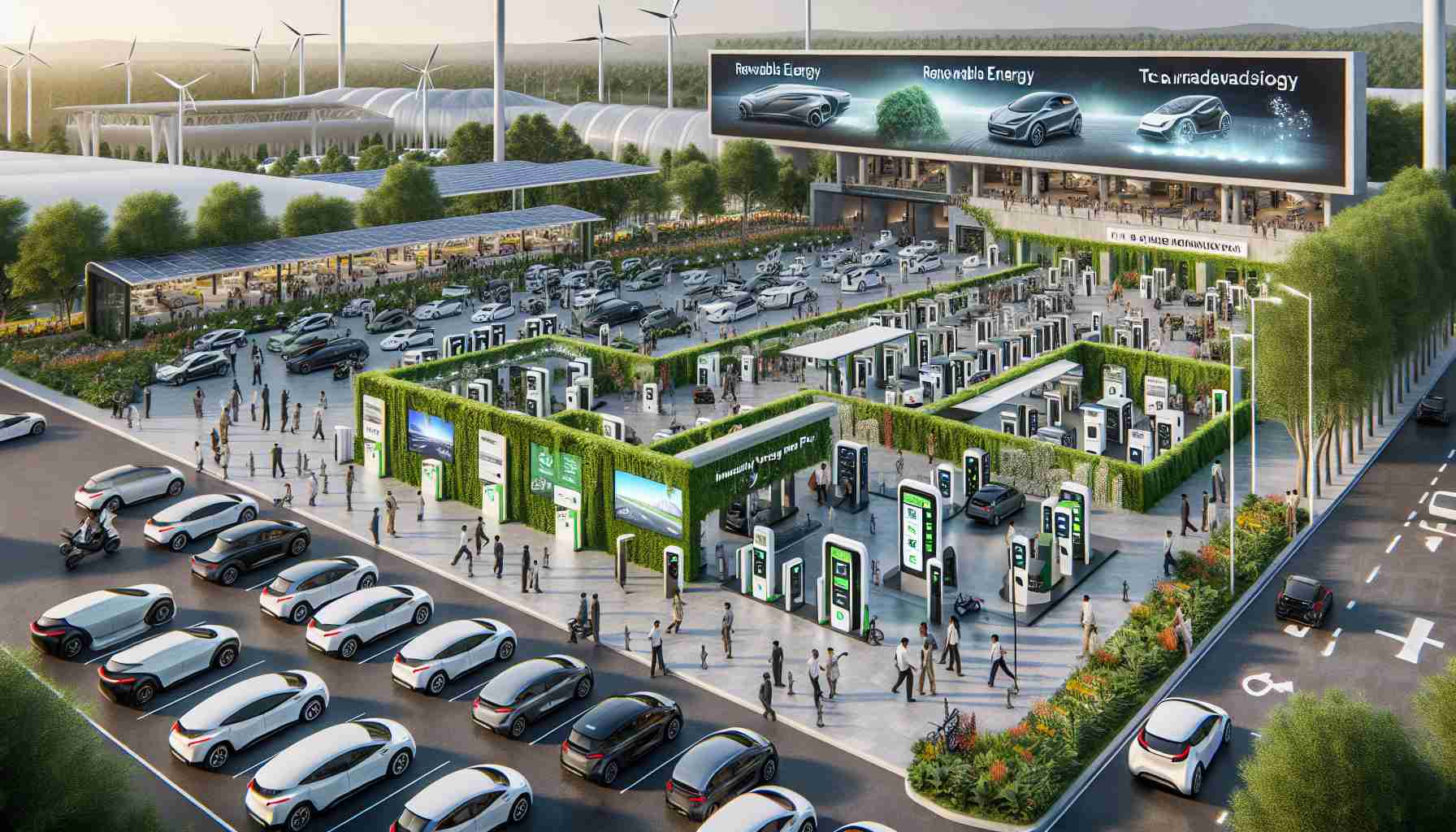The Telugu film industry is not the only thing making waves in Andhra Pradesh. Acclaimed producer TG Vishwa Prasad is leveraging his influence to champion significant advancements in the region, focusing on large-scale Telugu film productions and substantial investments. His company, People Tech Enterprises, has officially partnered with the Andhra Pradesh government to bring forth an ambitious initiative known as the Orvakal Mobility Valley, set to be India’s inaugural private electric vehicle park.
Spanning an impressive 1,200 acres, this innovative EV Park aims to create a robust ecosystem for electric vehicles within the state. The project is projected to attract investments worth Rs 13,000 crore, generating approximately 25,000 job opportunities and promoting economic empowerment for local residents. Groundbreaking for this monumental venture is slated for March 2025.
Vishwa Prasad expressed his appreciation for the proactive approach of the Andhra Pradesh government, highlighting the crucial roles played by Chief Minister N. Chandrababu Naidu and IT Minister Nara Lokesh in the swift establishment of this project. The strategic collaboration has swiftly moved through essential stages, including land allocation and departmental assessments, allowing for the formal signing of the memorandum of understanding. With the future operations in sight, Prasad is optimistic about the transformative impact this initiative will have, setting the stage for a new era of innovation and sustainability in Andhra Pradesh.
The Future of Electric Mobility in Andhra Pradesh
The establishment of the Orvakal Mobility Valley marks a pivotal moment not only for the Telugu film industry but also for the broader socio-economic landscape of Andhra Pradesh. This initiative positions the state as a potential leader in India’s electric vehicle (EV) market, significantly influencing regional development and technology adoption. As electric vehicles rise in prominence amid global climate concerns, Andhra Pradesh’s investments could catalyze a shift in consumer behavior and inspire other states to follow suit.
On a cultural level, the initiative promotes a green narrative, aligning with global sustainability goals. It encourages local communities to partake in a transformation characterized by innovation in transportation, thereby fostering an environmentally-conscious mindset. As electric vehicles become more mainstream, the cultural norms surrounding mobility may evolve, shaping public perception towards cleaner energy usage and reducing reliance on fossil fuels.
Furthermore, the potential economic implications are profound. The projected 25,000 job opportunities not only underscore the project’s immediate impact but also hint at long-term growth in ancillary industries. As the EV market expands, related sectors such as battery manufacturing, renewable energy sources, and smart infrastructure are likely to flourish.
In an era increasingly defined by environmental challenges, the Orvakal Mobility Valley serves as a beacon of hope, embodying the future trends of sustainable technology and collaborative governance. Its success could inspire significant investments elsewhere, championing a broader movement towards renewable energy adaptation and economic resilience across India and beyond.
Andhra Pradesh to Lead the Charge in Electric Vehicle Innovation
As India pivots towards sustainability and technological advancement, Andhra Pradesh is emerging as a key player in the electric vehicle (EV) sector. The state is poised to host the country’s first private electric vehicle park, the Orvakal Mobility Valley, through a groundbreaking partnership between renowned producer TG Vishwa Prasad and the state government. This ambitious project promises to redefine the automotive landscape in the region and beyond.
Overview of the Orvakal Mobility Valley
Located on a sprawling 1,200 acres, the Orvakal Mobility Valley is anchored in a vision to cultivate a comprehensive ecosystem for electric vehicle manufacturing and related industries. This initiative is not merely about producing vehicles; it aims to integrate various aspects of the EV industry, including research and development, manufacturing, and infrastructure support.
Investment and Job Creation
The projected investment for this venture stands at an impressive Rs 13,000 crore ($1.75 billion), which is set to invigorate the local economy. In addition to fostering innovation, the project is anticipated to create around 25,000 jobs, offering a significant boost to employment in the region. This employment surge is expected to elevate economic conditions for many families, promoting a more sustainable livelihood over the long term.
Timeline and Development Phases
The groundbreaking ceremony for the Orvakal Mobility Valley is scheduled for March 2025. The swift throughput of preliminary stages—including land allocation and the signing of the memorandum of understanding—has showcased the collaborative spirit of the Andhra Pradesh government. Chief Minister N. Chandrababu Naidu and IT Minister Nara Lokesh have been instrumental in facilitating these advancements, exemplifying effective governance in driving innovation.
Sustainability and Future Prospects
This project underscores a broader trend in India towards clean energy and environmental sustainability. By fostering a robust EV ecosystem, the Orvakal Mobility Valley is expected to reduce carbon emissions significantly and contribute to the country’s goals of achieving net-zero emissions by 2070. With Vishwa Prasad at the helm, the project aims to position Andhra Pradesh as a center of excellence in the EV space.
Features and Benefits of the Initiative
– Comprehensive Ecosystem: The park will host vehicle manufacturers, battery producers, and charging infrastructure.
– Economic Empowerment: Job creation and local business opportunities through investments in supply chains.
– Innovative Research: Focus on R&D for new EV technologies, furthering India’s position in the global market.
– Sustainability Focus: Aligns with India’s environmental goals by promoting electric mobility solutions.
Pros and Cons
Pros:
– Significant economic impact on local communities.
– Job creation in diverse sectors linked to EV production.
– Enhanced sustainability through reduced reliance on fossil fuels.
Cons:
– High initial investment and long-term economic dependence on the success of the EV market.
– Potential challenges in rapid technological advancements leading to obsolescence.
Conclusion
The establishment of the Orvakal Mobility Valley represents a transformative leap for Andhra Pradesh and sets a valuable precedent for other states in India. This initiative not only promises to stimulate local economies but also emphasizes the importance of transitioning to sustainable practices in transportation. As we move closer to the groundbreaking date, anticipation builds around how this project will reshape the future of mobility in India.
For more insights into technological advancements in India, visit Business Standard.













